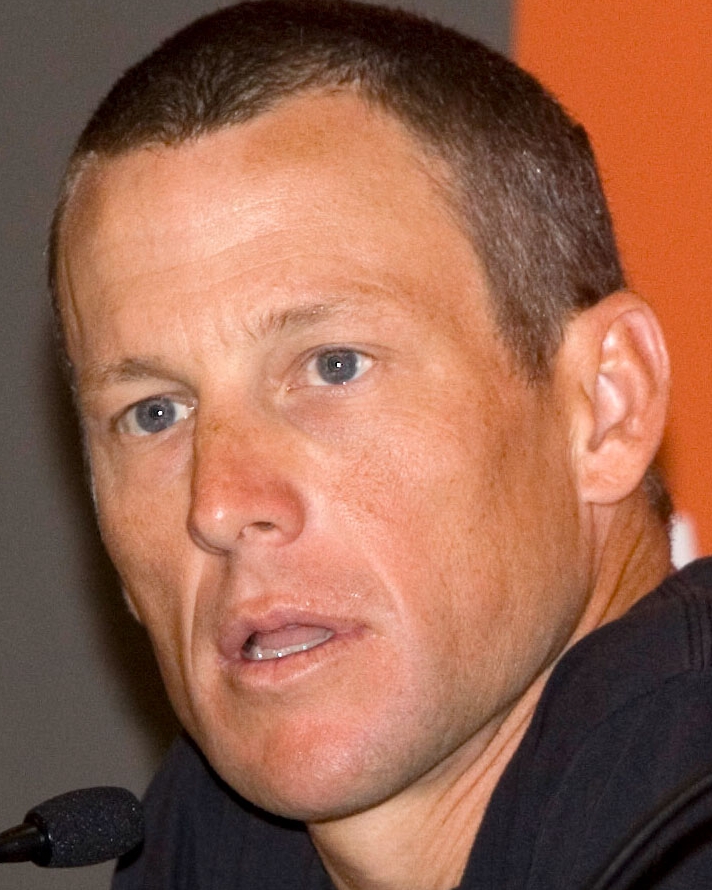Keeping Up the Lies: How Lance Armstrong’s Past Will Come Back to Haunt Him After His Appearance on Oprah

By: Robert B. Gardner on February 10, 2013
While largely overshadowed by Manti Te’o’s fake girlfriend, Lance Armstrong’s interview with Oprah Winfrey airing on January 17, 2013 marked the end of an era for an American hero. By the time Armstrong interviewed with Oprah, the public was already accepting his guilt. The journey began in 1997, when Armstrong set up his Livestrong foundation after recovering from testicular cancer.[1] Despite testing positive for a banned substance, Armstrong won his first Tour de France in 1999.[2]
By 2004 Armstrong won his sixth straight Tour de France and faced his first major doping allegation in L.A. Confidential: The Secrets of Lance Armstrong, a book written by journalists David Walsh and Pierre Ballester.[3] Largely relying on the testimony of Emma O’Reilly, Armstrong’s former assistant, Walsh and Ballester gave intimate details of Armstrong’s doping. As any innocent man would do, Lance Armstrong sued everyone involved, including O’Reilly and The Sunday Times for libel.[4] He settled both suits by blatantly lying to the public and all parties involved. While O’Reilly settled without having to pay Armstrong, her reputation was dragged through the mud, with Armstrong telling people “she was ‘an alcoholic and prostitute.’”[5]
After lying and successfully convincing the public that he was clean by using the courts as his vehicle, Armstrong was cleared of any doping charges by independent Dutch investigators in 2006.[6] At this point Armstrong’s vehement lies about doping scared away anyone who knew about his doping. Then, Armstrong stepped back into the spotlight making a comeback in 2009, finishing third in the Tour de France, despite the AFLD (France’s anti-doping agency) accusing Armstrong of failing to cooperate with a drug tester.[7]
Finally, in 2010 Armstrong’s teammates began to come forward with the truth. Floyd Landis accused several teammates, including Lance Armstrong, of doping. Remaining consistent, Armstrong continued to lie to anyone and everyone that would listen, despite Landis filing a whistleblower claim against him in court.[8] Two more teammates (Stephen Swart and Tyler Hamilton) went public in stating that they saw Lance dope while part of the U.S. Postal Service racing team.[9] Armstrong continued his staunch defense, dragging all of his detractors through the mud along the way.
In 2012, the truth finally reigned victorious. It only took a 1,000 page evidentiary report released by the U.S. Anti-Doping Agency (“USADA”) with statements from twenty-six people, including eleven former teammates, for Armstrong to drop the lies.[10] While many people think that Armstrong should be punished severely in the criminal arena, he is likely to avoid criminal sanctions. He did lie in court testimony, but luckily for Armstrong, the statute of limitations has run for perjury charges based upon that statement.
However, Armstrong gave away any leverage he may have had by interviewing with Oprah publicly and admitting his wrongdoing. Maybe he thought it would look better to the public, but judges and taxpayers will not be happy about his abuse of the legal system. At the time he sat down with Oprah there was already one pending lawsuit against him from former teammate Floyd Landis. Landis is suing Armstrong under the False Claims Act, which allows whistleblowers to recover up to three times the damages plus penalties for each false claim.[11] Landis claims that the USPS was defrauded $30 million for sponsoring Armstrong’s team, so Armstrong could be liable for up to $90 million.[12]
While Armstrong will likely settle with the Landis and the Federal Government for less than the maximum $90 million in damages, his bullying ways have opened him up to a myriad of lawsuits alleging libel, defamation, and fraud. SCA Promotions, among others, will sue Armstrong to recover $12.5 million in bonuses paid to Armstrong for winning the 2002 Tour de France.[13] Armstrong’s doping and subsequent lies violated his contract. Additionally, both Emma O’Reilly and The Sunday Times have claims of fraud and defamation against Armstrong for both his comments and lies in settling prior lawsuits. Countless others in cycling and the media have viable libel and defamation claims for Armstrong’s ludicrous antics, not to mention various potential claims that he defrauded donors to his Livestrong foundation.
After abusing the American legal system for so many years, Lance Armstrong will feel the full weight of its power and it will be much more difficult than a rehearsed interview with Oprah.
[1] See Timothy Rapp, Timeline of Lance Armstrong’s Career and Eventual Downfall, Bleacher Report (Jan. 14, 2013), http://bleacherreport.com/articles/1484496-timeline-of-lance-armstrongs-career-and-eventual-downfall.
[2] See John Sinnott & Tim McGowan, Lance Armstrong’s Demise: How an All-American Hero Fell to Earth, CNN (Jan. 15, 2013) http://edition.cnn.com/2012/10/22/sport/lance-armstrong-profile-cycling-usada/index.html.
[3] See id.
[4] See Michael McCann, Armstrong’s Confession to Have Stark, Wide-Reaching Impact, Sports Illustrated (Jan. 18, 2013), http://sportsillustrated.cnn.com/more/news/20130118/lance-armstrong-legal-implications/.
[5] See id.
[6] See Lance Armstrong Cleared of Doping Charges, Fox News (May 31, 2006), http://www.foxnews.com/story/0,2933,197602,00.html.
[7] See Rapp, supra note 1.
[8] See McCann, supra note 4.
[9] See id.
[10] See 31 U.S.C. § 3729 (2006); Erika Kelton, The Whistleblower Lawsuit Against Lance Armstrong: What to Expect Next, Forbes (Jan. 17, 2013), http://www.forbes.com/sites/erikakelton/2013/01/17/the-whistleblower-lawsuit-against-lance-armstrong-what-to-expect-next/.
[11] See Kelton, supra note 10.
[12] See id.
[13] See McCann, supra note 4.

